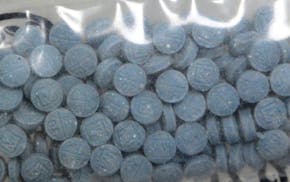WASHINGTON — The North American Free Trade Agreement, better known as NAFTA, was supposed to open the door to the U.S. sugar market for Mexico. But as the Mexicans tried to step inside, America's sugar producers — including Minnesota's nation-leading sugar beet industry — flexed their political muscles and slammed the door shut.
Now, the Commerce Department awaits comments on a new agreement with Mexico that limits what were supposed to be almost unlimited sugar exports to America. The new deal has supporters and foes marveling at the Midas touch of the sugar lobby in dealing with free trade.
"Let's face it," said Montana State University agricultural economist Gary Brester. "The sugar lobby is entrenched and they get a lot of help from the corn lobby that wants high sugar prices so it can sell more high fructose corn syrup."
American Crystal Sugar and Minn-Dak, two of Minnesota's most politically connected sugar beet cooperatives, declined to comment for this story, referring the Star Tribune instead to an industry trade group. But American Crystal CEO David Berg testified earlier this year at a daylong hearing before the International Trade Commission where U.S. sugar producers charged Mexico with illegally dumping sugar in the U.S. and driving down the price.
Berg called increases in Mexican sugar to the U.S. "catastrophic." If not controlled, Berg testified, Mexican sugar could force Minnesota sugar beet farmers to exit the business with thousands of jobs lost forever.
$3 billion a year cost
What Berg did not emphasize, but those opposed to Mexican sanctions did, is that the price of sugar in the U.S. is already far above the world market price because of price supports, loan guarantees and import restrictions that Congress affords the U.S. sugar industry. Researchers say those higher prices cost consumers and food and beverage makers who use sugar in their products roughly $3 billion a year.
The Corn Refiners Association disputed Brester's assertion that its members benefit from high sugar prices. The trade group opposed sanctions against the Mexicans, a spokesman said.
"American Big Sugar is the sole beneficiary of the only U.S. agriculture program that has not been reformed in modern times, a program that cost taxpayers $259 million in subsidies that went into Sugar's pockets over last year alone," the CRA said in a statement. "In these circumstances it is irresponsible for them to assert that unfair foreign competition has depressed U.S. sugar prices at a time when imports declined and domestic production surged."
Still, the Trade Commission and Commerce Department came back with findings favorable to U.S. sugar makers. The agencies decided that the Mexican government's subsides of sugar mills gave that country's producers an unfair advantage over U.S. producers. The Commerce Department threatened to force financial penalties on Mexican companies exporting to the U.S., a move that forced the Mexicans to accede to new export limits.
Several agricultural economists who specialize in U.S. sugar policy say the new agreement undermines NAFTA's open market promise. The costs to consumers and businesses that use sweeteners is unclear. But one explanation for the success of the sugar lobby is that the sugar program's effect on the average consumer breaks down to about $10 to $20 per person per year.
"You're not going to start rioting for $10 per year," said Iowa State University agricultural economist John Beghin.
Win for lobbyists
Meanwhile, Beghin said the new restrictions mark another win for an advocacy machine that spends millions on political contributions and lobbying across party lines. According to the Heritage Foundation, sugar makes up 2 percent of all U.S. crop production, but 35 percent of all campaign contributions and 40 percent of all lobbying by crop producers.
Minnesota's U.S. senators and House members from the state's rural districts are all recipients of campaign contributions from sugar beet boosters, and all strongly support the government protections the state's sugar producers receive.
Sen. Amy Klobuchar, a Democrat, said the new restriction on Mexican imports "allows our sugar producers to compete on a level playing field so that they can continue creating good jobs here in Minnesota."
Such reasoning helps explain why sugar usually gets exempted from free trade agreements when they are first negotiated, Beghin said. In the case of NAFTA, the sugar lobby "has used a back door" to get around a 20-year-old agreement that sugar producers always considered a "big loss."
Supporters of the just-announced restrictions insist that Mexico's sugar market was anything but free. They also charge that the real battle here is not with Mexico, but with candy and soft drink makers who want cheaper sweeteners to increase profits.
"We believe that U.S. sugar producers and consumers alike will benefit if an agreement is finalized," Phillip Hayes, a spokesman for the American Sugar Alliance, said in a statement. "Like our counterparts in Mexico, we want NAFTA to operate as intended and to foster free and fair trade in sugar between the countries."
Cargill bucks sugar giants
Minnesota-based agricultural giant Cargill, which recently entered into a partnership with Brazilian sugar producers, has battled to keep markets open.
"In general, we believe trade agreements should be comprehensive and not limit products or sectors," Devry Boughner Vorwerk, the company's director of international business relations, said in an e-mail.
Montana State's Brester agrees that the Commerce Department's Mexico sugar proposal goes against NAFTA, but he cautions that "we put too much weight on the power of the lobby if we don't consider the advantages [to Mexican producers].
"This sets up a market for some of their sugar at a very high price," he said.
It does much more to solve a problem for an already-coddled U.S. industry, countered Vince Smith, who directs the Agricultural Policy Research Program at the American Enterprise Institute, a free market think tank.
"Domestic sugar beet producers have become much more productive because of genetically modified seeds," Smith said. "So they needed to control exports to the U.S."
Sugar repaid a loan
The record exports of Mexican sugar to this country in the past year were an effective place to attack, Smith said. Price and loan guarantees had combined with surplus supplies to force the government to accept some sugar as repayment for loans and then sell that sugar at a loss of hundreds of millions of dollars.
That fact ran hard up against the sugar producers' claim that the U.S. sugar program operates at "no cost to the government."
"They wanted to avoid the appearance of getting money from the taxpayers," Smith said.
Jim Spencer • 202-383-6123

Remnants of bird flu virus found in pasteurized milk, FDA says
Timberwolves dispute between Taylor and Lore, Rodriguez over ownership moves to mediation
Tesla 1Q profit falls 55%, but stock jumps as company moves to speed production of cheaper vehicles
Montana minor league baseball team in dispute with National Park Service over arrowhead logo

